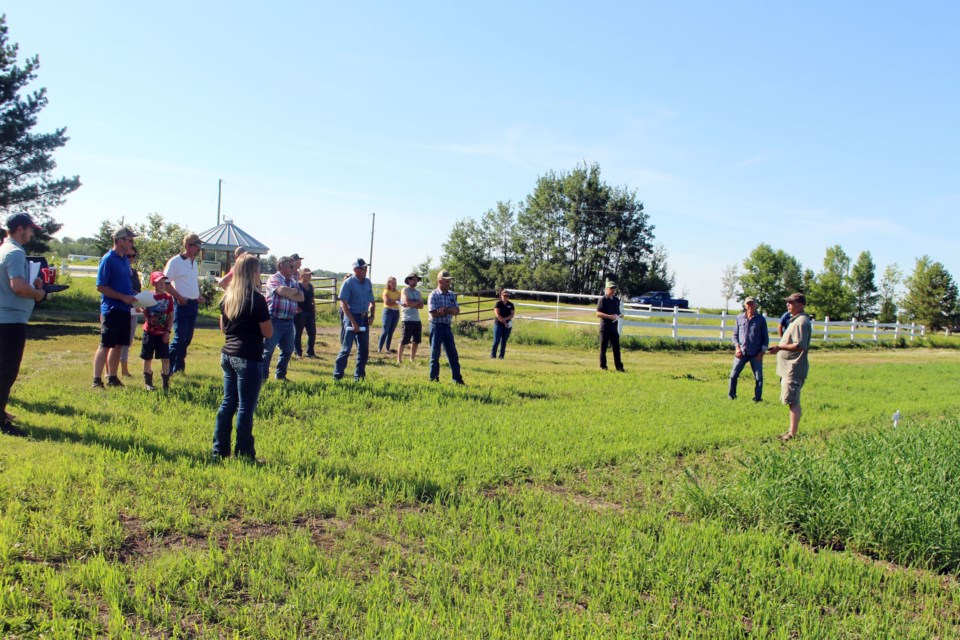BONNYVILLE – The Lakeland Agricultural Research Association (LARA) is facing uncertainty when it comes to the funding the organization receives from the provincial government.
LARA is waiting to hear if the province will release the funds they rely upon through several streams, which cover the expenses ranging from the core operating grant to replacing ageing equipment.
According to LARA environment program manager Kellie Nichiporik, the organization operates with funding from a multitude of sources.
“A small portion comes from private research, industry, commissions, and federal funding,” she explained. “Roughly 35 per cent comes from municipal grants, but a majority of funding comes from provincial sources.”
Nichiporik explained the money they receive is separated into several streams, with a core operating grant that covers a portion of administration and operation costs amounting to roughly one-sixth of their overall budget.
“We then have many individual grants that cover 50 per cent of project costs through the Canadian Agricultural Partnerships programs. This covers costs for seed, fertilizer, some manpower and extension costs for various trials, and is project-specific. Every trial is different, but on average it costs $500 per plot (to seed, maintain, and harvest) and we seed around 2,100 plots annually. Small plot equipment is also expensive, as we just replaced our ageing combine this past year for a cost of $170,000,” she explained.
Another stream of funding LARA receives is through the Agriculture Service Board (ASB) Resource Management Funding Stream and not receiving it could have major impacts on the services they offer.
“Provincial ASB funding, which goes to municipalities to cover their core functions, has been cut by 27 per cent this year. But, the resource management funding stream is in limbo. This greatly impacts LARA, as it funds the environmental program. If this funding isn’t granted, it could mean the discontinuation of the delivery of Environmental Farm Plans, assistance for producers to apply for grants, riparian health assessments, diagnosis of tree diseases and water issues, and coordination with school programs, such as the classroom agriculture program and walking with moose.”
Nichiporik continued, “If this funding isn't provided, it may result in the loss of long-term staff, which will impact the greater community as they serve as a stakeholder in larger planning processes, such as water management plans and assist community groups such as the Moose Lake Watershed Society. Although many of the extension events, such as the workshops that LARA hosts, are funded through municipal dollars, the coordination and planning (manpower) is paid for by the provincial funding. So the delivery of workshops, field tours, and webinars will also be impacted.”
The provincial government moved much of the Canadian Agriculture Partnerships funding of $37-million to the new Results Driven Agriculture Research, Nichiporik stated, which left the future of organizations like LARA with an uncertain future with obtaining money from the provincial government.
“Even the core operating dollars aren’t certain, which creates problems with maintaining current operations and planning for the future,” Nichiporik expressed.
Matt Janz, general manager of environmental and protect services for the MD of Bonnyville, told council during a Feb. 3 meeting that not receiving the funding would be a big hit for LARA.
“That’s going to be challenging and I think there’s going to be some tough decisions made by these research associations. Even municipalities because there’s lots of them that do that environmental stewardship within the municipality, not having research associations doing it. There’s going to be a lot of uncertainty out there and maybe some programs will have to be cut once the province does make up it’s mind on if they’re going to fund it going forward or not.”
The MD of Bonnyville contributes $60,000 annually to LARA.
Coun. Ben Fadeyiw said he wonders how the province’s decision to privatize part of their agricultural research will impact rural Alberta.
“How does a small rural place like LARA, that does the same thing a big group does, get a small chunk of the crumbs that are out there?”



